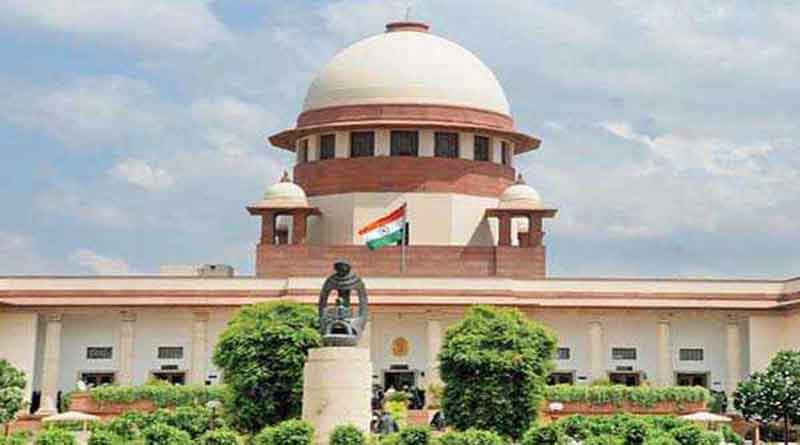SC extends stay on demolitions, reserves decision on laying down pan-India directives
Insight Online News
New Delhi, Oct 1 : The Supreme Court on Tuesday extended its earlier order on freezing demolitions across the country without the permission of the top court as it reserved its decision on laying down pan-India directives.
A bench of Justices B.R. Gavai and K.V. Viswanathan reserved its orders on laying down pan-India directives governing demolitions of unauthorised structures after several petitions were filed before the apex court alleging that demolitions were carried out by several state authorities without sufficient notice.
Solicitor General (SG) Tushar Mehta, the second highest law officer of the Centre, suggested that service of notice should be effected through a registered post. In case, the registered post is not accepted, notice may be served through alternative means, including affixing on walls of the property in question, SG Mehta said.
He flagged that the pan-India guidelines are being issued by the highest court of the land based on a few instances alleging that one particular community is being targeted.
At this, the apex court said, “We are a secular country. Whatever directions will be passed, will apply pan-India irrespective of the religion. We do not intend to protect encroachments on public roads, footpaths, railway lines, etc. If there is any religious structure in the middle of the road, be it gurudwara, dargah or temple, it cannot obstruct the public. Public interest and safety is paramount.”
“What we are loudly thinking is that protect the property (alleged unauthorised structure) after demolition order is passed, say 10-15 days to allow exercise of appellate remedy and in case, a court entertains the grievance, the question of stay should be decided within a month,” it added.
Further, the Supreme Court mulled the formation of an online portal recording the fact of dispatch of notice for demolitions.
It reiterated that the illegal structure will have to go if built in contravention of statutory rules. “We will ensure that our order does not help encroachers,” the apex court said.
Representing the petitioner side, senior advocate C.U. Singh, said that the notice period should be uniform across the country and there should be a clear mandate for service of notice on a person lodged in jail or custody.
“There cannot be demolition in a particular vicinity. If authorities come to the conclusion that a house is illegal, they should make a survey of the entire area. They should not go and demolish one particular house, and say ‘we have done everything as per law’,” submitted advocate M.R. Shamshad.
After hearing both sides, the bench reserved its orders and thanked the parties for assistance rendered by them.
In an earlier hearing held on September 17, the top court flagged “glorification” and “grandstanding” over bulldozer action in the country, as it paused all demolition actions across the country, except with its permission, till the next date of hearing.
Passing the order, Justice Gavai-led Bench said that unauthorised structures may be demolished following the due procedure but under no circumstances, property be demolished for “extraneous reasons”.
The SC clarified that its order will not protect any unauthorised construction on public roads, streets, footpaths, railway lines, or public places.
Posting the batch of petitions alleging demolitions carried out without notice for the next hearing on October 1, it had said that it would lay down directives within the framework of municipal law guaranteeing legal remedies.
The Supreme Court has mulled the formation of pan-India guidelines against the demolition of property of individuals accused of committing criminal offences. It stressed that even unauthorised construction has to be demolished in “accordance with law” and state authorities cannot resort to the demolition of the property of the accused as a punishment.
It remarked that not only the house of an accused, but the house of a convict cannot meet such a fate while clarifying the apex court‘s intention to not protect unauthorised structures.









